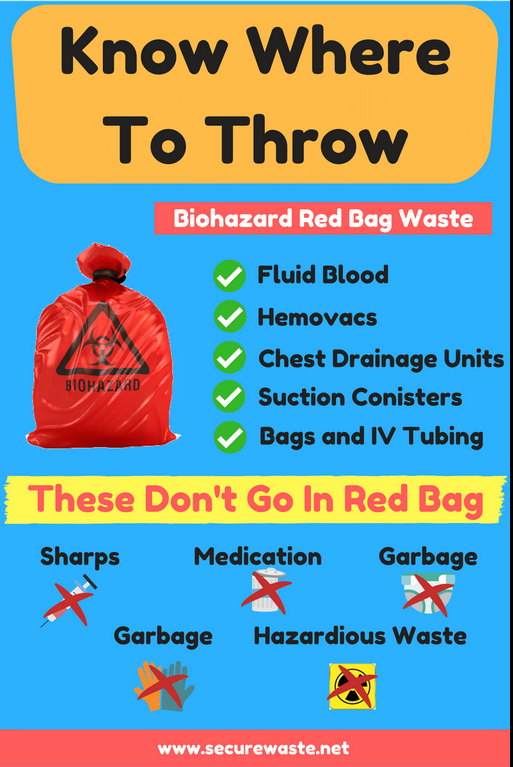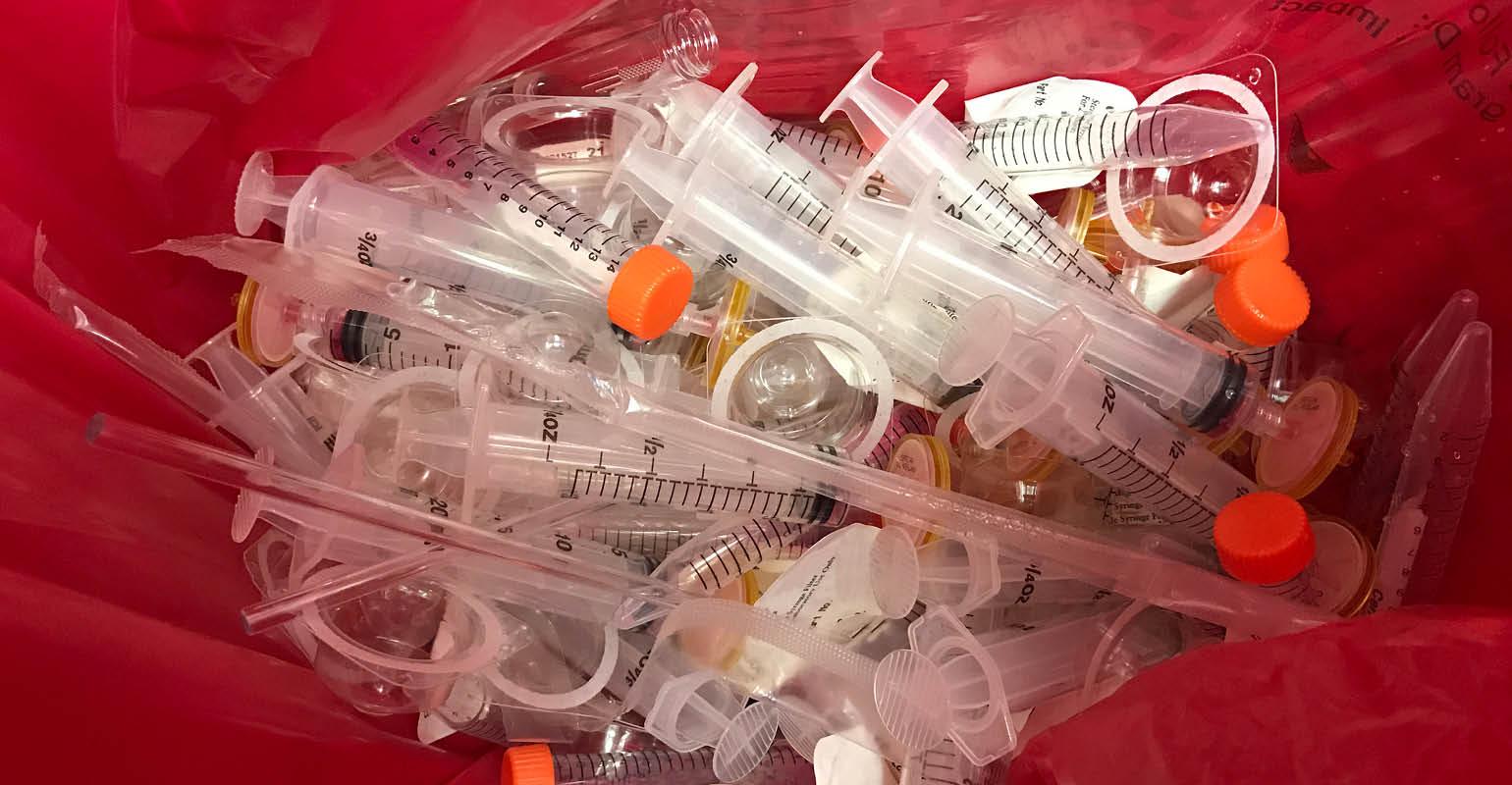Shielding Wellness: Specialist Medical Waste Removal Services for a Tidy Setting
Shielding Wellness: Specialist Medical Waste Removal Services for a Tidy Setting
Blog Article
Stay Ahead of Regulations: Expert Guidance on Medical Waste Disposal
In a globe where the healthcare sector is regularly developing, it is vital for clinical centers to stay in advance of policies when it comes to the appropriate disposal of medical waste. From recognizing the various categories of clinical waste to executing the best collection and segregation methods, this conversation will certainly provide actionable suggestions and valuable understandings to assist centers stay ahead of laws in the ever-changing landscape of clinical waste disposal.
Recognizing Medical Waste Categories
Understanding clinical waste groups is essential for correct disposal and administration in medical care facilities. Medical waste describes any waste generated by medical care activities that might posture a threat to public health or the atmosphere. It is important to categorize clinical waste precisely to guarantee its safe handling, transportation, disposal, and treatment.
There are several categories of clinical waste that healthcare facilities need to be knowledgeable about. The most typical categories consist of contagious waste, pathological waste, sharps waste, pharmaceutical waste, and chemical waste. Each category has particular guidelines and regulations for its appropriate administration and disposal.
Pathological waste refers to human tissues, organs, or body components that call for unique handling and disposal. Drug waste makes up run out, extra, or infected medicines that need cautious handling and disposal.
Staying Up-To-Date With Regulatory Modifications
Remaining present with regulatory adjustments is critical for health care centers to guarantee conformity and correct monitoring of medical waste disposal. medical waste removal near me. With policies regularly developing, it is essential for health care centers to remain current to prevent charges, fines, and potential harm to the environment and public health and wellness
To remain ahead of governing changes, medical care centers ought to develop a system for monitoring and monitoring updates. This can be done by registering for governing e-newsletters, going to workshops and seminars, and actively joining industry organizations. Furthermore, facilities ought to designate a personnel or team in charge of staying notified and disseminating info to appropriate stakeholders.
Routine interaction with governing firms is additionally important. Healthcare centers should develop partnerships with regional, state, and federal agencies to ensure they know any changes in policies that might affect their waste management methods. This can be done through routine meetings, participation in public comment periods, and aggressive engagement with regulatory agencies.
Additionally, health care centers ought to think about partnering with waste administration business that focus on clinical waste disposal (medical waste disposal services with WasteX). These firms are typically skilled in the most recent guidelines and can give advice and support to make certain conformity
Implementing Appropriate Collection and Segregation Approaches
To successfully handle clinical waste disposal, healthcare centers need to develop appropriate collection and partition techniques based on regulative standards. Applying these techniques makes certain the risk-free handling and disposal of possibly harmful materials, safeguards the setting, and lessens the danger of injuries and infections to medical care workers and the basic public.
Proper collection and partition approaches include the usage of designated containers and labeling systems. Medical care centers must provide clearly classified containers for various kinds of clinical waste, such as sharps, transmittable waste, pharmaceutical waste, and non-hazardous waste. These containers must be color-coded and plainly marked to avoid confusion and advertise simple identification.
In addition, healthcare centers must train their staff on the appropriate treatments for collecting and segregating medical waste. This consists of enlightening them on the different types of waste, the proper containers to use, and the importance of following guidelines and guidelines. Regular training sessions and correspondence course ought to be conducted to make sure that personnel continue to be current on best methods.
In addition, medical care facilities must establish a system for regular collection and disposal of clinical waste. This may involve partnering with accredited waste monitoring firms that concentrate on medical waste disposal. These firms will make top article sure that the accumulated waste is moved and taken care of in compliance with regulatory requirements.
Choosing the Right Disposal Approaches

Incineration is among the most common and efficient approaches for disposing of certain kinds of clinical waste, such as pathological waste and sharps. It involves the controlled burning of waste at high temperature levels, minimizing it to ash. Incineration can release harmful toxins into the air and contribute to air pollution.
Chemical treatment entails the usage of chemicals to sanitize and counteract the waste. Microwave treatment makes use of microwave energy to heat and sanitize the waste.
Making Sure Conformity With Documents and Training
After very carefully taking into consideration the ideal disposal methods for clinical waste, healthcare centers must ensure compliance with guidelines and lessen ecological influence by carrying out effective documents and training treatments. This action is critical in preserving a sustainable and secure setting for both healthcare employees and the public.

Healthcare employees that handle clinical waste must receive appropriate training on waste segregation, handling, and disposal procedures. By providing comprehensive training, medical care facilities can encourage their personnel to make educated choices and decrease read more the threat of improper waste disposal.
Final Thought
To conclude, staying ahead of regulations in clinical garbage disposal is vital for medical care centers. medical waste removal. Understanding the different categories of clinical waste, remaining updated with regulative modifications, implementing correct collection and partition approaches, picking the proper disposal techniques, and making sure compliance through documentation and training are all important steps. By adhering to these standards, healthcare organizations can properly get rid of and take care of of clinical waste in a accountable and safe way
From understanding the various classifications of medical waste to executing the ideal collection and partition approaches, this discussion will give actionable pointers and valuable understandings to aid facilities stay ahead of guidelines in the ever-changing landscape of medical waste disposal. - medical waste disposal services with WasteX
The most typical groups include contagious waste, pathological waste, sharps waste, pharmaceutical waste, and chemical waste. Healthcare facilities ought to provide clearly labeled containers for different kinds of medical waste, such as sharps, contagious waste, pharmaceutical waste, and non-hazardous waste. Healthcare centers ought to develop a thorough system to tape-record and track all elements of clinical waste disposal, including types of waste produced, amounts, and disposal techniques made use of. Healthcare employees who manage clinical waste should get suitable training on waste segregation, managing, and disposal procedures.
Report this page